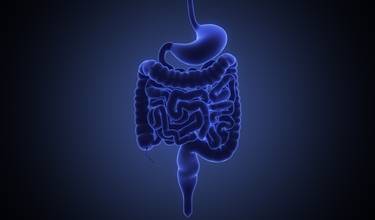What is IBS?
Irritable Bowel Syndrome is a condition characterised by occasional abdominal pain, discomfort and a change in bowel habits. The condition is caused by a disturbance in the colon’s normal function. IBS affects around 11 % of the population globally. However, only few people consult their GP when they experience symptoms.
What are the symptoms of IBS?
- Abdominal cramps and discomfort
- A change in bowel habits
- Harder or looser stools than normal
- A change in frequency of bowel movements
- Constipation alternating with diarrhoea
- Mucus in stools
- Gas or bloating
What causes the symptoms?
Experts don’t know what causes the condition, but some studies suggest that it could be due to stress, or the colon being hypersensitive. This hypersensitivity is thought to generate muscle spasms in the bowel, which causes the characteristic symptoms like diarrhoea and constipation. In addition, factors like anxiety, muscular tensions and everyday problems are thought to affect the symptoms, but these factors are not likely to trigger the condition.
How can I prevent IBS?
In some people, certain types of food trigger the symptoms, and it is therefore recommended to avoid eating these. It is also recommended to eat regularly and to get plenty of exercise and sleep.
How is the diagnosis made?
The symptoms of IBS are rather characteristic, and based on these the doctor is usually able to make the diagnosis. Nevertheless, it is always important to rule out other conditions with similar symptoms, such as intestinal cancer or biliary diseases. Since blood samples usually don’t show abnormal values when you have IBS, these can be used to distinguish IBS from other conditions. The doctor might also do a colonoscopy to examine the inside of the colon.
How is IBS treated?
As IBS is harmless, one of the most important factors is to reassure the patient that there is nothing to worry about. A profound understanding of the condition and its benign nature is the basis of the treatment. The symptoms can be alleviated with foods, which are high in fibre, and regular bowel habits. In case of severe constipation, laxatives may become necessary, but the use of these should be limited. Hypnosis, behavioural therapy, mindfulness and meditation have proven effective in treating IBS as well.


